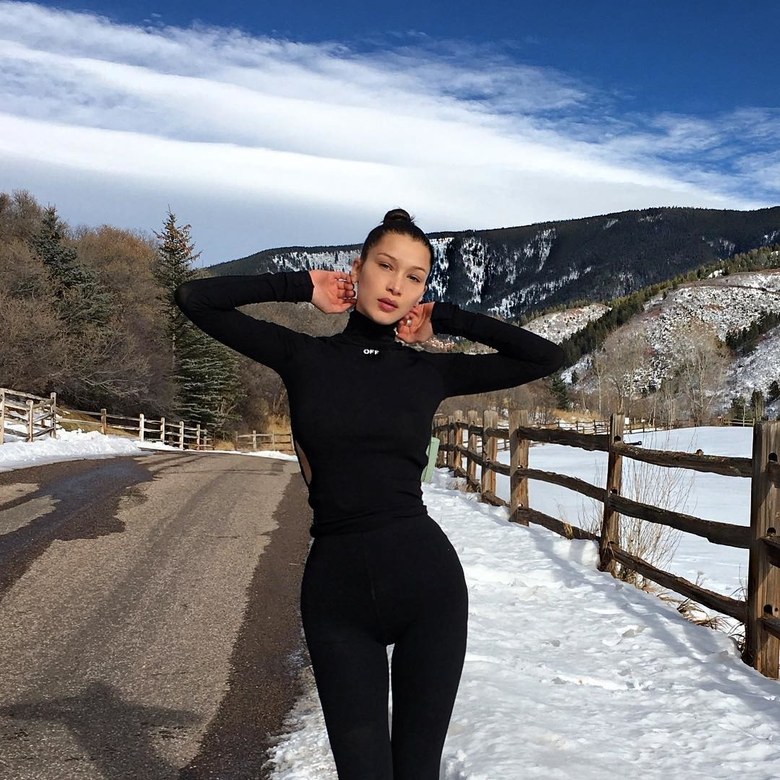News feed
As the season changes, so does our skin. Winter skin needs a big dose of TLC, too, and much like we dress according to season, our skin wardrobe should change when the weather does. So how does one adequately arm themselves, or more specifically their skin, when it’s cold out?
Here, Ultraceuticals Global Education Ambassador Tracey Beeby, advises on how to best protect your skin from the chill. From steering clear of hot showers to bulking up you biomimetics, Beeby breaks down winter skin like a pro. A useful dialogue to get your skin engine roaring, no matter how cold it is outside (and it’s cold!)

The temperature has well and truly dropped. Should we adjust our skincare routine much like we change our wardrobe? Or is this a myth?
Due to the cooler seasons we naturally tend to gravitate towards artificial heating, heavier foods, hot showers and bulkier clothes. All of this can result in added dehydration towards our skin. As a result, it may be a good idea to re-evaluate your current skin care and opt for a slightly richer texture to nourish you skin effectively.
Being mindful however, that because your skin feels tight it may just be dehydrated with superficial dryness but still have a healthy oil flow. By using moisturisers that are too rich for the skin, can make them break out so by seeking advice from a professional clinician, the correct products will be given.
What products / ingredients should we stop using in the cooler months, and what should we add?
oil away
I would recommend steering away from oil. While it feels lovely to relieve dry skin, it will not effectively penetrate the skin to appropriately moisturise. Keep oils for massages.
soaps n supplements
Dry skin should also avoid harsh surfactants in cleansers, soaps and ensure they use a PH cleansing solution to effectively clean without stripping. It’s also good to fight from the inside out. Our diet should be rich in essential fatty acids or with supplements. Avoid extremely hot, long showers and apply moisturiser immediately following. Finally, ensure your skin is very well protected with antioxidant and UV protection daily to prevent these aggressors from damaging the skin.
milk it
Steer towards milk cleansers if you’re suffering from dry skin. Ultra Hydrating Milk Cleanser is a gentle cleanser that works very similar to cleansers that are oil-based. This cleanser is free of surfactants which dry the skin, instead it cleanses and nourishes with oils made up of Grapeseed Oil and Caprylic/Capric Triglyceride. This way, the oils bind to the dirt and makeup on the skin and dissolve and lift it away, leaving the skin fresh and clean and in the same time, deeply hydrated and moisturised.
serum saviour
When considering a serum, keep in mind your key skin concern. For hydration, you can’t go past the Ultra B2 Hydrating Serum. It’s oil-free and contains a powerful blend of Pro Vitamin B5 (Panthenol) and Vitamin B3 (Niacinamide) along with high levels of Hyaluronic Acid to synergistically aid in restoring the moisture balance and provide long-lasting hydration. Other treatment serums in the range utilise the ingredients Retinol, Ascorbic Acid and AHAs and BHA. These serums can also assist in assisting dry skin but must be recommended into a homecare program slowly by your skin clinician.
bring on the biomimetics, baby
Your moisturiser should contain ingredients that mimic the components of the skin known as ‘biomimetic’. These ingredients include hyaluronic acid, cholesterol, linoleic and linolenic acid to name a few. If the skin is dry then a thicker creamier texture would definitely be required for the cooler months.
What are the biggest skin concerns you see in winter?
If your skin is dry, some signs you will notice are that your skin may feel tight, especially when you get out of the shower. It may be a little rough to the touch and may even show signs of flaking and as a result become sensitised to the environment. Facial redness and sensitivity is also a common skin concern due to artificial heating, spicy foods and extreme hot and cold temperatures.
Dry, dehydrated skin is a big problem in winter. How is this best solved?
The easiest steps to implement are to keep hot showers to a minimum and never have the hot water hitting your face directly. Try and drink as much water as you do in summer and reduce hot comfort drinks like excess coffee whilst maintaining a healthy diet. Again, it’s a good idea to re-evaluate your skincare to ensure it’s nourishing enough for your skin.
Can we skip the SPF in winter?
Absolutely not. This is a common mistake, but SPF is required every day to prevent premature ageing and skin cancer. UVA is found during the daylight hours throughout the year which can penetrate glass and clouds and equally damaging to our skin compared to UVB rays.










